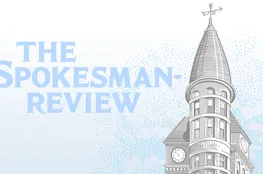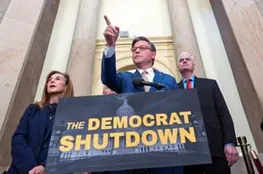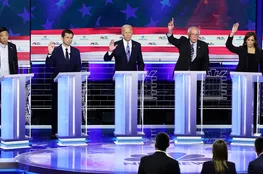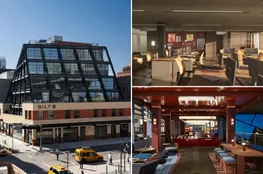Alderman seeks power to ban short-term rentals from Chicago precincts If a Far Northwest Side alderman gets his way, Chicago City Council members could gain the authority to block short-term rentals like Airbnb’s from popping up in their wards. Ald. Anthony Napolitano, 41st, is pushing forward legislation that would give aldermen the ability to unilaterally ban new rentals on a precinct-by-precinct level. The rental companies could overturn the bans by collecting signatures from 10% of the precinct voters, around 150 to 200 signatures, he said. Napolitano, whose ward includes Edison Park and surrounding areas near O’Hare International Airport, argued the amendment he seeks is about “being able to advocate for your residents when it becomes a problem,” citing party complaints in particular. “Because it doesn’t exist right now,” he said. “We can’t advocate for them at all.” The City Council’s License and Consumer Protection Committee is set to consider the legislation Wednesday. If it advances, it could face a full City Council vote next week. Airbnb criticized the proposed ban, arguing in a statement it threatens to destabilize short-term rental tax revenue earmarked to fight homelessness and aid domestic violence survivors. “The proposed ordinance amendment is an unnecessary violation of Chicagoans’ constitutional property rights and echoes the city’s dark history of ‘Restricted Residential Zones,’ which once controlled who could visit, travel through, and own homes in certain neighborhoods,” Airbnb Public Policy Manager Jonathan Bucker said in the statement. There has been a 78% decrease in the rate of party reports made to Airbnb in Chicago since 2020, according to the company. Airbnb pointed to efforts to curb parties, among them reservation screenings and support lines. It also touted the $191 million Chicago hosts earned last year, as well as the tourist spending in neighborhoods the company says the stays generate.
Some aldermen, like Southwest Side Ald. Marty Quinn, 13th, have pushed forward with signature-collection efforts that have blocked Airbnb in large swaths of their wards. Napolitano said his measure “flip”s the script” to place the onus on companies instead of residents. He likened the powers his ordinance would grant aldermen to the one they already have over new liquor licenses going into neighborhood businesses: “Open it up, drop some in and close it again.” He said he would “look at” a ban in problem areas immediately if the amendment passes, but would leave other spots untouched. Even after aldermen voted last month to require short-term rental companies to share more data with them, Napolitano said the added transparency is not enough because he does not have the power to fix issues “in real time” when parties happen in his ward’s single-family homes. “It isn’t fixed by Friday or Saturday, but they’re gone by Sunday, and then the neighbors are left to deal with the problem, and then it pops back up two, three weeks later,” he said.
Pre-existing short-term rental units would be allowed to continue operating if rentals were banned in a precinct, Napolitano said. He shared concerns that the rentals drive up housing costs or harm tax revenue brought in by hotels, but added that his goal is “not to hurt Airbnb.” “We can’t go into this and destroy an industry,” he said. “It does work in a lot of areas, it does work well, it does help some residents to keep a home because it brings a substitute income.” The one-bed, one-bath Airbnb that Jackeline Torres and her husband rent out from their Norwood Park home would be gran dfathered in if Napolitano, Torres’ alderman, banned rentals in her area. Still, the City Council effort to control where Airbnb’s can go bothers Torres.
The paralegal rents out the separate upstairs space to help pay for rising property taxes, she said. Short-term rental bans would be “intrusive to my privacy” and rights, she argued. “An alderman shouldn’t restrict who I allow into my home and my freedom of allowing people to stay in my home,” she said. “One person shouldn’t determine that.” Her unit is rented out over half the year, she said. It’s been available for three years. Most of the guests she welcomes are traveling professionals or tourists visiting nearby family. Safety is top of mind for the mother of three young children, and it has never been an issue while renting, she said. “We always had a positive experience with the people who were staying here,” she said. “It supplemented our already existing income and gave us a little extra cushion to make sure we were in a better financial position.” Three different guests have even decided to look for homes in the area after their stays, she added.
Parts of Fuentes’ Northwest Side ward include some of the city’s fastest-gentrifying neighborhoods, she said. And in pockets of her 26th Ward like East Humboldt Park, where many of the ward’s short-term rentals are concentrated, Chicagoans are making the difficult decision to stay and face higher costs or leave, she said. “When you begin to short up the amount of units in our communities because we’re putting so many of them online for Airbnb, it sort of begins to also inflate those prices,” she said. Fuentes added that she gets “a lot of concerns” from residents about rental parties that are “disruptive to the natural ecosystem.” “I am not anti-Airbnb,” she said. “I just think there needs to be some form of regulation.”
























